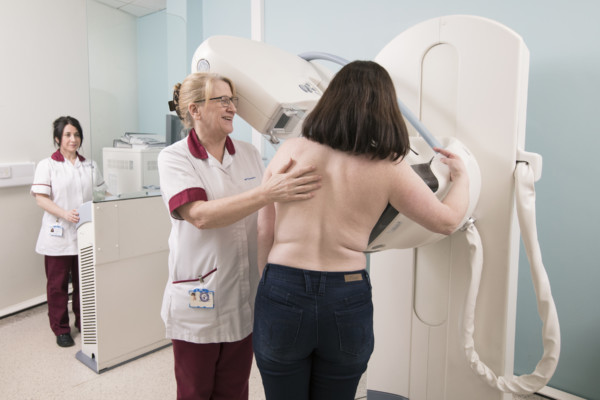Manchester BRC researchers join new oncology collaboration to drive forward translational cancer research
Oncology research experts from across the country – including from the NIHR Manchester BRC – have come together to establish a new collaboration to accelerate cancer research, translating scientific discoveries into tangible benefits for patients.
The National Institute for Health Research (NIHR) Oncology Translational Research Collaboration (TRC) brings together leading cancer researchers from across the NIHR’s Biomedical Research Centres to drive forward innovative research in key areas including early diagnosis, surgery, immunotherapy and radiotherapy. Through working in partnership, the Oncology TRC will be able to carry out research that requires real collaborative effort, and would not be possible by centres working alone. It will also complement research undertaken by other cancer research networks.

The NIHR Biomedical Research Centre (BRC) at The Royal Marsden and The Institute of Cancer Research, London, will chair this new Oncology TRC.
Professor Stan Kaye, Consultant Medical Oncologist at The Royal Marsden and Chair of the collaboration, said: “Progress in cancer research demands collaboration and I am delighted the NIHR’s leading Biomedical Research Centres will unite through the Oncology TRC.
Our programme of work is just beginning, and I am confident that it has the potential to make a significant contribution to improving cancer treatment and care in the next few years.
Manchester BRC’s cancer research spans three themes – Advanced Radiotherapy, Precision Medicine, and Prevention and Early Detection (PED).
Professor Gareth Evans, BRC Theme Lead for Cancer PED and Consultant in Medical Genetics and Cancer Epidemiology at Saint Mary’s Hospital – part of Manchester University NHS Foundation Trust – is the Academic Lead for Manchester on Oncology TRC, and is also involved in the project’s Early Diagnosis workstream. Professor Catharine West, Manchester BRC Theme Lead for Advanced Radiotherapy, also co-leads its Radiotherapy workstream, while Professor Tim Illidge, New Radiotherapy-Immunotherapy Combinations Programme Lead for the BRC’s Precision Medicine theme, and Consultant Oncologist at The Christie NHS Foundation Trust, will be working on the Immunotherapy workstream.
Professor Evans said: “Manchester BRC’s Cancer Prevention and Early Detection research aims to reduce the burden of common cancer, by developing new screening strategies and biomarkers to detect the disease sooner, and to match patients to more personalised treatments or even prevent cancer developing altogether.
The Oncology TRC will maximise the power and expertise across England’s 20 BRCs, to further advance cancer research and new treatments. Since its inception in 2017, Manchester BRC has led pioneering research in early detection, and we’re proud to be a collaborator on this exciting new project.
Part of the Early Diagnosis workstream will look at the development of cancer Rapid Diagnostic Centres. These help GPs decide how to manage patients with vague symptoms that could be cancer, and where best to refer them for further tests and treatments, with two centres piloted in Greater Manchester.
Professor West added: “Our Advanced Radiotherapy research looks at new technologies and biomarkers, to improve the effectiveness of radiotherapy treatments, and minimise long-term side effects for patients.
“One of the first studies we’ll be working on for the Oncology TRC is Hamlet.RT, which will look at how artificial intelligence and radiomics – which extracts data from the scans used to plan treatment – can predict a patient’s risk of side-effects after radiotherapy for prostate, head and neck, brain or lung cancer.
This is a multi-centre study across 10 BRCs and will be a perfect example of how the Oncology TRC supports research collaboration for the benefit of patients.
Louise Knowles, Head of Research Faculty, Infrastructure and Growth at the Department of Health and Social Care, said: “It is fantastic to see our nation’s leading oncology expertise coming together to maximise the impact of the ground breaking research taking place in the NIHR’s Biomedical Research Centres.
“Our experience from COVID-19 has clearly demonstrated that collaborative working can drive forward life-saving research. By pooling collective expertise, the Oncology TRC has the potential to accelerate innovations and provide real benefit for people with cancer.”
By working collaboratively, the Oncology TRC will share expertise and best practice, map the landscape to identify gaps in research and areas of unmet need, and identify opportunities to work with external partners including industry and charities.
To find out more about the O-TRC, visit its page on the NIHR website or contact nocri@nihr.ac.uk.